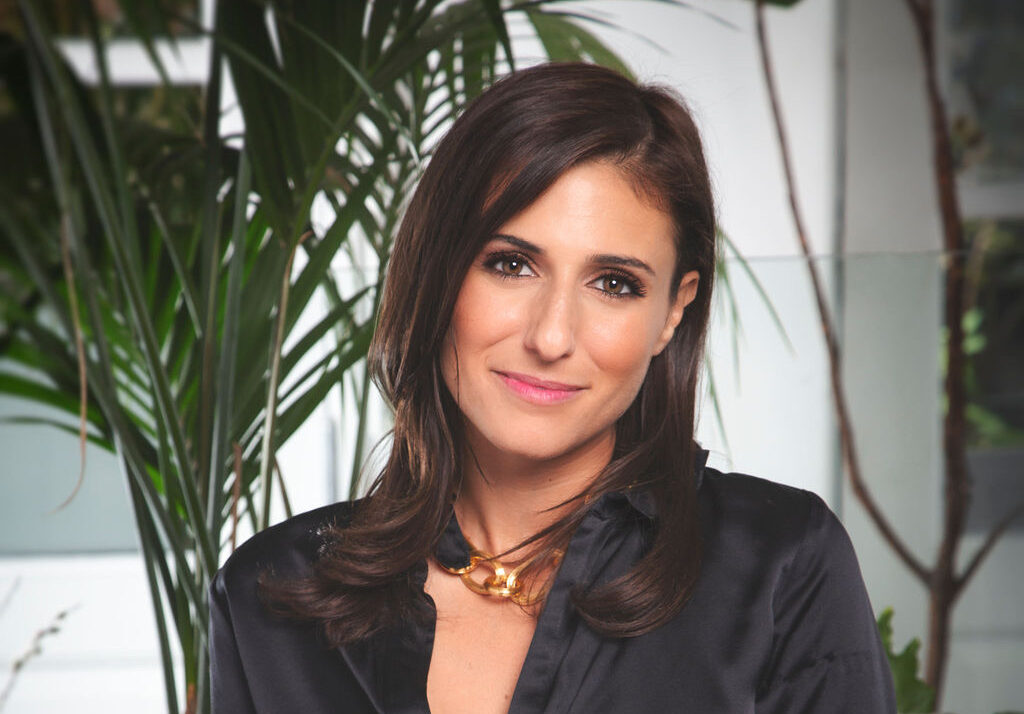‘They Describe it as Almost like a Death’: 60 Minutes+ Correspondent Laurie Segall on the Casualties of QAnon, and How She Scored Her Zuckerberg Interview (She Messaged Him on Facebook)

“My Signal is full of sadness,” says tech journalist Laurie Segall.
She’s referring to the people she speaks to — on encrypted messaging app Signal — who feel they have lost family and loved ones to the QAnon, a conspiracy theory that was born online and has swept through America, eventually fueling the Jan. 6 riot at the U.S. Capitol.
Segall covers movements like QAnon as a correspondent for 60 Minutes+, the streaming iteration of the iconic newsmagazine show that airs on the new platform Paramount+. It’s a natural progression for a reporter who covered Silicon Valley misfits turned billionaires in the tech boom of the last decade. After reporting on the rise of those titans, now she’s exploring the fallout their platforms hath wrought.
For a recent episode, Segall spoke to Wheeler, an Army veteran who was stationed at Fort Hood in 2014 when a gunman opened fire, killing three soldiers and wounding 12 others before killing himself.
Wheeler’s father descended so far into QAnon theories that he started to believe the shooting was faked.
“He was there on a day where a gunman injured all these people, killed multiple people. And when he came home, he was met with skepticism that it happened,” Segall told me on this week’s episode of The Interview podcast.
“What he had said was, ‘I have PTSD, not from the army, but from my family.'”
Segall has found many more people like Wheeler on a Reddit forum called QAnon Casualties, where members discuss “their loved ones who they say have been lost to QAnon,” she explained.
“They describe it as almost like a death,” she said. “They can’t speak to their mom or their dad anymore because they’re so involved in these conspiracies and it’s become aggressive.”
Segall herself has faced threats from the QAnon community. After one 60 Minutes+ piece investigating the belief and its adherents, she was the subject of a “Q drop” — a post from the anonymous account that started the conspiracy theory — declaring her a “domestic enemy.”
“I will say that was not a pleasant couple of days online,” she recalled.
Segall started her career at CNN, covering the rise of tech behemoths like Facebook, and the weirdo founders behind them. She rose to the position of senior tech correspondent at CNN, interviewing industry leaders like Tim Cook and Mark Zuckerberg along the way. Segall left CNN to start her own production company, Dot Dot Dot media, which focuses on the intersection of tech and humanity.
I asked Segall about her brilliant 2018 interview with Mark Zuckerberg, which came at a time when Facebook was facing unprecedented criticism for its handling of misinformation during the 2016 presidential election campaign — among other controversies.
She said that when she first interviewed Zuckerberg, in 2017, “Facebook and Mark in particular had not done a ton of press for a very long time.”
“He didn’t have to,” she said, despite effectively being “the ruler of a kingdom of 2.6 billion people.”
Segall explained that she ended up scoring the interview in a — perhaps — unsurprising way.
“The beginning of me getting that interview was I messaged Mark on Facebook,” Segall said. “And I said, ‘I think you have a responsibility as a leader to speak.'”
Listen to the full episode for our discussion on the Zuckerberg interviews, the future of QAnon and extremism, and Segall’s upcoming memoir Special Characters: My Adventures with Tech’s Titans and Misfits.
Download the episode here, and subscribe to The Interview on Apple Podcasts or Spotify.
New: The Mediaite One-Sheet "Newsletter of Newsletters"
Your daily summary and analysis of what the many, many media newsletters are saying and reporting. Subscribe now!

Comments
↓ Scroll down for comments ↓